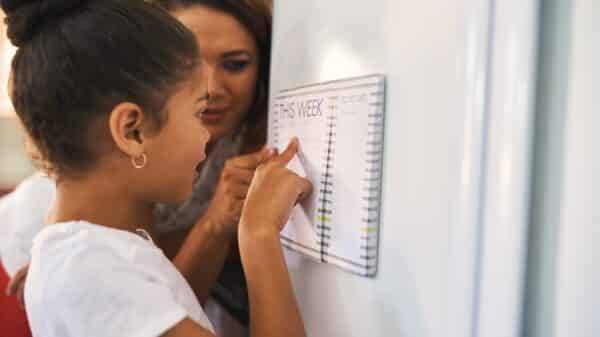It’s a stark reality that many families are grappling with today: the number of teenagers diagnosed with eating disorders nearly doubled during the pandemic. These disorders are not just challenging; they can be among the deadliest forms of mental illness. Discovering that your child is struggling with one can feel like a tidal wave crashing down, leaving you overwhelmed and scared. So, how can you navigate this difficult journey? Here, Dr. Lauren Salvatore, an expert in eating disorders and the director of Northwell Health’s Eating Disorders Behavioral Health Center, shares vital insights on how you can be a powerful ally in your child’s recovery.
“Treating children and adolescents with eating disorders is delicate work. But make no mistake—while the process is fragile, the disorder itself is like a monster that has taken over your child’s mind. For younger patients, sometimes as young as 8 years old, parents and caregivers become the frontline warriors in this battle,” Dr. Salvatore explains. With over a decade of experience, she emphasizes that families play a crucial role in their child’s healing. Many young patients lack the tools needed to fight this battle on their own, making it essential for parents to step in as their strongest advocates.
If you’ve just received your child’s diagnosis, where do you even begin?
Assemble a Strong Medical Team
This is where you’ll need to play a pivotal role. Your child will require a specialized team composed of medical and behavioral experts who can guide both their physical and mental recovery. Dr. Salvatore recommends consistently meeting with these professionals who will get to know your family’s dynamics and routines. They can address critical aspects like nutritional needs and strategies for handling meals outside the home.
Also, don’t forget to build your own support network. This could include family members, friends, or even therapists to help you cope during this challenging time. It’s normal for the early stages to involve a whirlwind of appointments, but afterward, the focus will shift to maintaining new routines and habits at home.
Create a Positive Atmosphere Around Meals
Once you have guidance from your medical team, it’s essential to put those strategies into practice at home. Your specialists will help you understand how to prepare and enjoy meals in a way that fosters healing. Dr. Salvatore emphasizes how mealtimes can often become stressful for children with eating disorders. However, parents can transform these experiences into calming, supportive moments. Rather than focusing solely on food or body image, conversations during meals can shift to lighter topics, making the dining experience more comfortable for everyone involved.
Monitor Social Media Use
We all know how detrimental social media can be to body image, especially for teens and tweens battling eating disorders. While it can sometimes be a source of connection for those facing similar struggles, it’s vital to approach social media use thoughtfully. Consider discussing as a family how to limit exposure to harmful images and messages while also finding supportive online communities that promote recovery and share helpful resources.
Keep Your Eye on the Ultimate Goal
Throughout this journey, it’s important to remember your long-term objectives. Your role is to help your child develop coping skills and eventually learn to manage their eating disorder independently. Initially, you may need to lead the charge against the “monster,” but over time, your aim should be to empower your child to take the reins. This gradual increase in their independence is a crucial aspect of their healing process.
Dr. Salvatore points out that caregivers have the ability to create a safe environment so that young patients can simply be kids. As you take responsibility for food and eating habits, your child can focus on experiencing life—attending school, socializing with friends, and gradually learning to make nutritional choices for themselves.
Let Go of Guilt
Finally, it’s essential to understand that your child’s eating disorder is not your fault. While your involvement is critical for their recovery, it’s important to recognize that these disorders often have complex biological and psychological roots. Dr. Salvatore underscores that guilt has no place at your table during this journey. Both parents and children must approach recovery as a joint effort against a common enemy, rather than a blame game.
Recovery is entirely possible. Many children who face eating disorders grow up to lead healthy, fulfilling lives. With the support and commitment of their families, overcoming an eating disorder can become a shared journey, one where everyone is united in the fight. By standing together, you can help pave the way for your child’s safe and successful transition into adulthood.
Image Source: New Africa / Shutterstock



































